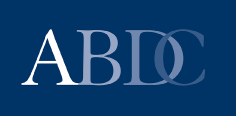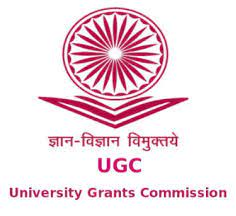
Indices around the world support the discoverability and credibility of research. Authors and publishers are in mutual agreement that inclusion within premier indices including Web of Science, Scopus, and more is of the utmost importance. Though in most cases, such indices require the submission process to be facilitated by the publisher, there are some unique lists that require authors or institutions to submit the publication for review.
 | | Benefits of Publishing With IGI Global: | - Traditional and Open Access Publishing Models
- Honorariums & Royalties
- Free Use of the eEditorial Discovery® Submission System
- Flexible Timelines (Less Than 1 Year, if desired)
- Rigorous Double-Blind Peer Review Process
|
| |
|
|
When Should Publishers Submit Publications for Indexing?
Many indices that exist today have a vetted evaluation process that can be swayed by the smallest of mistakes or misinformation. Such indices and/or directories include Web of Science, Scopus, Ei Compendex, PsycInfo, ERIC, PubMed, and the Directory of Open Access Journals (DOAJ) and the Directory of Open Access Books (DOAB). If a publisher can submit a publication for evaluation into an index or repository, it is strongly recommended that the publisher be the representative body to submit the application for many reasons, including:
- The publisher has all the necessary content needed to fill out the application. That information would have to be provided by the publisher in any circumstance where a secondary party is submitting.
- The Publisher has the full metadata needed to supply the index with the publications content to ensure that the most accurate information is displayed in the index. The publisher also has the ability to feed this information to the index as future content is published (in the case of journals). As an example, let’s say a journal is accepted to Web of Science. That means all articles published under that journal in the future needs to have its content submitted to the Web of Science for evaluation and inclusion on their database. The publisher has the metadata and the means to provide the index with the necessary content.
- The publisher is in constant contact with the indices regarding changes to their evaluation process and content requirements, so the publisher is knowledgeable of application changes and is prepared for those changes when applying. If any part of the submission application is incorrect or out of-place, the manuscript runs the risk of, not only failing the evaluation, but also receiving an embargo period before the manuscript can be re-submitted for evaluation.
So, although it may be tempting to submit your manuscript to these indices directly, we must advise against such practices. If the publisher can submit a journal or book to an index for evaluation, the publisher should be the only one to submit as they can give the publication the best chance of being accepted. Authors and editors are always encouraged to reach out to the publisher when new indices, abstracting lists, or repositories are found where the author believes the title should be included within.
That being said, there are certain repositories and country specific indices that the publisher may not be able to submit to due to lack of affiliation to that institution or country. Notable examples include ABDC, UGC-CARE, and many institutional repositories.
When May Editors/Authors Submit Publications for Indexing
ABDC
ABDC, or the Australian Business Deans Council, is a society that strives to nurture the national and global impact of Australian business education and research.
This is a database where all submissions must come from Australia or New Zealand (ANZ), and from a relevant stakeholder group:
- An Australian or New Zealand business school or faculty deemed to have a legitimate interest in the disciplines covered by the ABDC JQL.
- A relevant peak body representing ANZ academics.
- An individual or group of like-minded academics with formal affiliation/s to universities based in ANZ.
A publisher located outside of Australia/New Zealand, and who is not affiliated with relevant stakeholders, cannot submit a publication for evaluation.
The following criteria must be met by each journal accepted into the ABDC Journal Quality List:
- Have reached the necessary quality threshold level, as determined by the expert panel using globally accepted, externally validated journal ranking lists, journal citation metrics and expert peer review
- Adhere to general scholarly principles, including scholarly peer review
- Be relevant to the discipline areas of the ABDC, which include management, accounting, economics, information systems, business and taxation law and other agreed Fields of Research (FoRs)
- Not be a predatory journal
For 2022, the timeframe for public submissions was September, but it is uncertain if that will be the case for 2023. For more information about the ABDC Journal Quality List, you can visit the website
here.
UGC-CARE List
UGC-CARE, or the University Grants Commission- Consortium for Academic and Research Ethics is a database that aspires to stimulate and empower Indian academia. The UGC-CARE List is classified into the four areas of science, social science, arts and humanities, and multidisciplinary based on all science journal classification.
It is crucial to stress that any individual within India, whether a professor or independent researcher, can recommend a journal for submission by going through a college/university that is a part of the Internal Quality Assurance Cell (IQAC), so long as it has the recommendation from teaching faculty. This means that a publishing house located outside of India, and who is not affiliated with IQAC, cannot submit any publications for evaluation. That is when the publisher must ask Indian scholars for their assistance in submitting any relevant material to UGC-CARE for evaluation.
If you require any assistance with the application process, IGI Global would be happy to help. After creating an account, if you do not already have one, you can view the submission requirements and process
here. For more information about UGC-CARE and their objectives, you can learn more
here.
The basic information needed for the first part of a journal title evaluation is:
- Journal title
- Journal broad discipline and focus subject
- Name of publisher
- Country of origin and registered address
- Journal language/s
- Publishing frequency
- Editor name, editorial office address, phone, email and website
- Current status (date of last publication) (print/online/both)
- ISSN / eISSN
- Other registrations/memberships such as UGC-CARE
In the second and third part of the journal title evaluation process, UGC-CARE will review:
- Verification of information regarding its history
- Consistency
- Peer recognition
- Market reputation
- Academic credentials of the editors
- Peer-review process
- Indexing
- Citations
- Charges/fees
The information required for journal analysis will be obtained directly from the public domain. The journal can be disqualified from the indexing process at any stage if there is evidence of false/misleading/incorrect/insufficient information or unsubstantiated claims.
The UGC-CARE List is dynamic, and it is updated quarterly i.e., on the first of January, April, July, and October (or on the next working day if there is a public holiday on these dates) every year.
Institutional Repositories
Similar to how UGC-CARE and ABDC have country requirements, many institutional repositories have affiliation requirements, meaning that only an individual who is associated with that institution, or an accepted group by the institution, can submit a publication for inclusion on their database. This also means that a publishing house cannot submit any publications to the repository for inclusion. These institutions can be colleges, universities, government-run, or associated with a specific company or research area.
The criteria for these repositories can differ widely from uploading content in a specific format to only allowing Open Access manuscripts. The best way to find the needed criteria for your institution is to investigate their repository and ask them questions about what you would need to submit. Some best practices to keep in mind for submitting to institutional repositories is:
- Follow the guidelines specified by the repository you are submitting to.
- Make sure you understand the criteria for each repository to ensure the best chance of acceptance for the publication.
- If metadata is required, make sure to contact your publisher regarding that information.
- Use the correct file formats and use consistent, descriptive, and concise file names, even for image file names.
If you have any questions or need assistance with the application process, we would be happy to help. You can reach out to our indexing department for assistance at
indexing@igi-global.com.
Conclusion
We cannot stress enough that in most circumstances, the publisher should be the only party submitting applications for indexing. There are few exceptions to this, and one such exception is when the index or repository requires the submitting party to be from a specific country or institution. For ABDC and UGC-CARE, their mission is to foster the knowledge for their respective countries. For institutional repositories, they wish to promote the research for individuals who are associated with their name.
All IGI Global publication stakeholders are asked to check with IGI Global before submitting a title to ABDC, UGC-CARE, or another index following similar restrictions to publisher applications as we can support in building an effective and accurate application for you to submit. For help submitting applications, or if you have any questions about indexing or a repository/index that you think IGI Global should look into, please contact our indexing department (
indexing@igi-global.com).
About IGI Global
Founded in 1988 and headquartered in Hershey, Pennsylvania, USA with a subsidiary office (IGI Science and Technology, Ltd.), operating out of Beijing, China, IGI Global is a leading medium-sized independent academic publisher of international scientific research. They are committed to facilitating the discovery of pioneering research that enhances and expands the body of knowledge available to the research community through traditional and open access publishing workflows. Working in close collaboration with expert researchers and professionals from leading institutions, IGI Global publishes quality peer-reviewed content across 350+ topics in 11 core subject areas, including business, computer science, education, engineering, healthcare, social sciences, and more. With over 150,000+ industry-leading researchers and experts worldwide contributing to IGI Global’s publications, they ensure that each contains the most emerging and timeliest research. Learn more about IGI Global here.
Newsroom Contact
Emma Baronak
(717) 533-8845 ext. 183
ebaronak@igi-global.com
www.igi-global.com